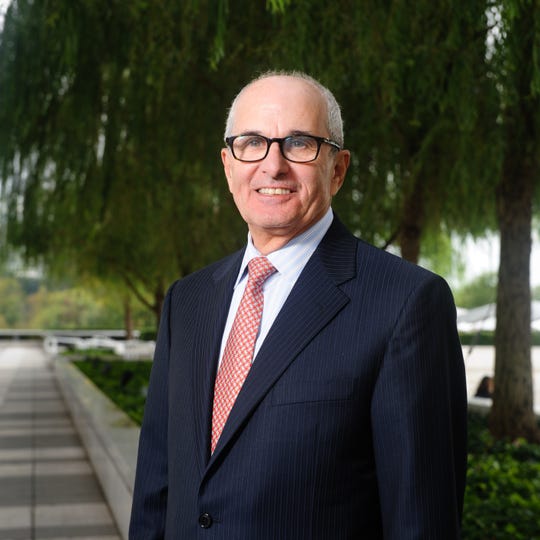 |
| Marshall L. Matz (Photo: Special to the Register) |
The conferences reinforced each other with similar messages and goals. The goals identified at both meetings were global food security, eliminating hunger by focusing on increased agriculture production to drive the local economies and establishing peace through agriculture.
The World Food Prize was established in Des Moines by Dr. Norman Borlaug in 1986, the only person to ever win the Nobel Peace Prize for his work in agriculture. He became known as the father of the “green revolution,” creating new and improved seeds for Mexico, seeds that then spread to India and Asia. His last dream was to extend the green revolution to Africa and “take it to the farmers.” Over the last 20 years Ambassador Ken Quinn has built the Prize into an extraordinary week-long meeting that brings together the world’s leading experts in agriculture.
The Prize symposium opened this year with Mark Green, the Administer of the United States Agency International Development, announcing the establishment of a new bureau for Resilience and Food Security to “bridge the gap between food assistance, humanitarian aid and food security, helping families and communities take ownership of their lives and livelihoods.”
In Ghana, the former Secretary General of the United Nations, Kofi Annan, another winner of the Nobel Peace Prize, shared Borlaug’s dream but also recognized that Africa needed a unique and different approach to a green revolution. Africa is composed of 54 sovereign countries with little in the way of extension services or infrastructure to reach rural smallholder farmers.
With backing from the Gates and Rockefeller Foundations, Mr. Annan became the first Chairman of the Alliance for a Green Revolution in Africa, AGRA. Dr. Agnes Kalibata, the President of AGRA and former Minister of Agriculture in Rwanda, hosted AGRA’s 10th Forum in Ghana in September. The Forum attracted 2,800 delegates from 79 countries.
The presence of the private sector has grown significantly along with the size of the event. The African Union has urged all countries in Africa to devote at least 10 percent of their respective budgets to agriculture and the African Development Bank under the leadership of Dr. Akin Adesina is making investments in agriculture a major priority.
Ambassador Quinn attended the Forum in Ghana and Dr. Kalibata hosted a panel in Des Moines on AGRA. AGRA also joined with the Tony Blair Institute and the Volcani International Partnerships from Israel to release a report on Israeli agriculture and its applicability for developing countries.
The President of the Democratic Republic on the Congo, H. E. Felix Tshisekedi, presented in Iowa and announced that the Congo and many African countries were making agriculture a priority for economic development. The Congo has been known for mining, but in the future there would be an emphasis on agriculture as a source of employment and income. This diversification is critical not just for Africa but also for global food security as Africa has more uncultivated and underutilized agriculture land than anywhere else in the world.
Dr. Borlaug’s dream of a green revolution in Africa is taking root. Africa is “leapfrogging into the future” in the words of Dr. Kalibata.
It is important to recognize the challenges ahead. The agriculture technology that exists today is not yet reaching many of the farmers who live in very rural areas without roads to give them access to modern inputs and access to markets. The seeds must also be combined with education to convince farmers that the cost of seed and other inputs will increase yields enough to justify spending the precious few dollars they may have.
While the challenges are significant, modern technology is helping and holds great promise. Africa has advanced rapidly in communication and iPhones are being used for education and finance. While cell phones can’t deliver seeds, drones might be able to fill the gap.
Beyond these logistical challenges, agriculture policies and regulations need to be harmonized across the continent and the new African Free Trade Agreement implemented. Africa has the potential to feed itself and those who gathered at the symposiums in Iowa and Ghana are focused on that mission ,Fulfilling the dreams of both Borlaug and Annan is within reach.
Marshall Matz, formerly Counsel to the Senate Committee on Agriculture, has specialized on global food security at OFW Law in Washington, D.C. for 40 year
BINNABOOK PUBLISHERS



0 Comments:
Post a Comment
Your Views are needed.Thanks!